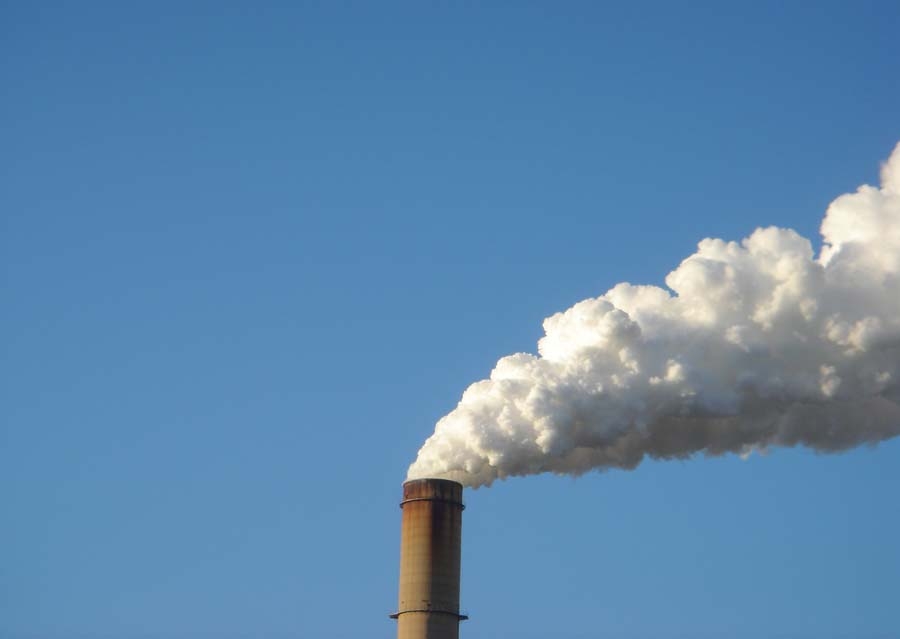The governors of California, Washington and New York have formed the United States Climate Alliance in response to President Trump’s decision to withdraw from the Paris Climate Agreement.
Oregon is notably missing from the group of founding members of the new coalition, which is dominated by west coast states. The new alliance plans to convene U.S. states committed to upholding the Paris Climate Agreement and taking aggressive action on climate change.
Oregon Governor Kate Brown spokesman Bryan Hockaday said Brown is committed to working with all states to fight climate change. “She looks forward to learning more about this newly formed partnership,” Hockaday said.
Jay Inslee, Washington’s governor, said in a statement: “I am proud to stand with other governors as we make sure that the inaction in D.C. is met by an equal force of action from the states.
“Today’s announcement by the president leaves the full responsibility of climate action on states and cities throughout our nation.”
The governor of California, Jerry Brown, who was instrumental is pushing forward the state’s economy-wide cap and trade program, the only such system in the U.S., said: “The President has already said climate change is a hoax, which is the exact opposite of virtually all scientific and worldwide opinion, I don’t believe fighting reality is a good strategy — not for America, not for anybody.
“If the President is going to be AWOL in this profoundly important human endeavor, then California and other states will step up.”
RELATED STORY: 100 BEST GREEN WORKPLACE AWARD WINNERS SOUND ALARM OVER CLIMATE PACT WITHDRAWAL
UPDATE, JUNE 2: Gov. Brown issued a press release affirming the state’s commitment to fighting climate change. Although the release did not mention the new climate alliance, Brown did later confirm Oregon has joined the alliance.
****
Oregon companies and civic leaders have weighed in on the U.S. climate withdrawal:
Timothy McMahan, chair of law firm Stoel Rives’ Climate Change Practice Initiative, issued the following statement:
“It is unclear at this time precisely how the United States’ withdrawal from the Paris Accord will impact emissions from the electric generation sector. The federal government’s decision may embolden states as well as local governments to continue enacting clean energy policies and incentivizing clean energy technology investments. For example, California Governor Brown has pledged that his state (standing alone, one of the world’s largest economies) will cooperate with other nations, including China, in the development and implementation of clean energy technologies and carbon controls to combat climate change. Stateside developments, as well as actions by international investment funds and other corporate entities will proceed notwithstanding either a withdrawal from the Paris Agreement or a potential end to the Clean Power Plan. Indeed, a withdrawal from the Paris Accord may well incentivize investments in clean technologies and stimulate significant new economic ties between the states and other nations. Finally, under Article 28 of the Paris Accord, it appears the earliest effective date of a withdrawal would be November 2020. There may be alternative, and potentially more drastic, options at the current administration’s disposal to remove the United States from the Accord. Stoel Rives will continue monitoring and covering developments on these important issues.”
Here is a statement from Nike:
“We are deeply disappointed by the recent shift in climate policy. Nike believes that climate change is a serious global threat and that the world will need to radically redesign industrial systems and economies in order to enable a low-carbon growth economy. We will continue to honor the core commitments of the American Business Act on Climate Change Pledge, including reaching 100 percent renewable energy in all Nike-owned or -operated facilities around the world by 2025, participating in the U.S. Department of Energy’s Better Buildings Challenge and advancing materials innovation globally.
U.S. Sen. Ron Wyden issued the following statement:
Trump’s withdrawal from the #ParisAgreement will leave America sicker & poorer.
— Ron Wyden (@RonWyden) June 1, 2017
“Trump’s decision to backtrack on America’s commitment to fight climate change will further damage our environment and leave Americans sicker and poorer. Almost every other country in the world knows that climate change is one of the major challenges of our time and has signed up to do something about it. The United States must be part of the solution and keep its seat at the global decision-making table.
“Rejecting the Paris Agreement weakens American leadership abroad and makes it harder for U.S. businesses to compete. By reversing the United States’ obligation to fight climate change in partnership with the rest of the world, the Trump administration is putting a bullseye on American exporters and the jobs they support.”
U.S. Sen. Jeff Merkley responded on Twitter:
Pulling out of #ParisAgreement may be a win for Bannon and those who share his extremist views, but an unquestionable loss for everyone else
— Senator Jeff Merkley (@SenJeffMerkley) June 1, 2017
If we don’t aggressively lead the clean energy revolution, China will beat us—and they’ll capture the rewards in growing jobs and prosperity
— Senator Jeff Merkley (@SenJeffMerkley) June 1, 2017
The science is clear, and the question is no longer whether the global community will #ActOnClimate, but when and how.
— Senator Jeff Merkley (@SenJeffMerkley) June 1, 2017
Trump’s shortsighted, extremist strategy on #ParisAgreement threatens to put American leadership at a disadvantage for generations to come. pic.twitter.com/YtW3I79JiQ
— Senator Jeff Merkley (@SenJeffMerkley) June 1, 2017
Instead of proceeding with this terrible plan, Trump should defy #PresidentBannon and chart his own course that will truly put America first
— Senator Jeff Merkley (@SenJeffMerkley) June 1, 2017





